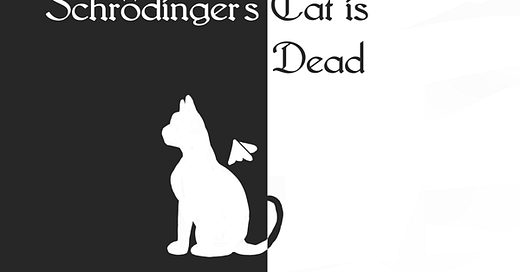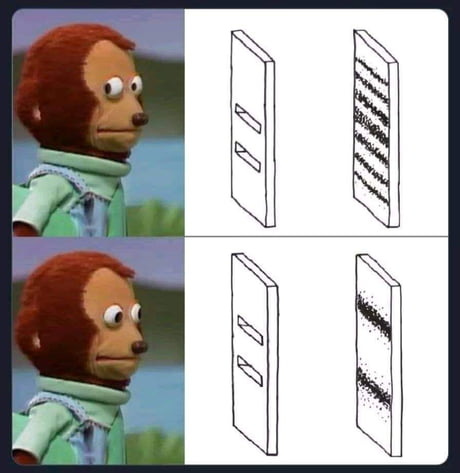14: The future is Quantum
This weirdly wonderful tech will change everything. It may unravel the secrets of nature, disrupt industries, and maybe even give us the investment(s) of our lifetime. A series of essays on it.
Quantum mechanics is the most fascinating subject I have ever come across. It has intrigued me for years. It makes me think of the very fabric of reality, and it spectacularly exposes the fact that we do not really know much about our universe (or most likely our multiverse).
I think in the years and decades to come, quantum mechanics harnessed through quantum computers will make science and magic look the same. Quantum Computing (QC) is an extremely powerful technological leap and it is no exaggeration to say that the 21st Century will be largely dominated by what happens in QC. As we speak, there is a new “space race” going on for leadership in this technology, between countries and companies alike.
In this series of essays, I will attempt to explain (i) the weird and wonderful basics of quantum mechanics, (ii) quantum computing’s power and gigantic implications and (iii) potential ways to ride the wave (from an investment perspective).
So here goes part (i): The basics of quantum mechanics:
Quantum mechanics is a fundamental law of nature, which is most clearly seen at the scale of atoms and subatomic particles. Given that the whole universe is made up of atoms, the theory should apply to everything (i.e. even large objects and living beings), but that gives way to philosophical and mind-bending questions (you will soon see why).
Quantum mechanics is probably the most tested/experimented/proven theories in science. It works. No one understands how, but we know it works. The weirdest characteristics of quantum mechanics are:
Superposition: A quantum object can be in multiple states at the same time. For example, an electron orbiting an atom is not at a definite point in space, like the Earth orbiting the Sun. The electron is actually “everywhere” around the orbit at the same time. Think of it as spread out into a cloud of possibilities of positions around the orbit. This wave of possibilities is described by the famous Schrodinger Equation. So the key takeaway here is that quantum phenomena exist in a “superposition” of all possible states simultaneously, described by a wave function. They are not particles in a particular space (yet).
The Observer Effect: If objects existing in multiple states at the same time wasn’t weird enough, try this: if you simply “observe” a quantum superposition, it instantly and completely “collapses” into a particle with a definite location. The fact that you observed it, causes it to dramatically change its state. Check out this fun video for more on Superposition and Observer Effect. A well known thought experiment to think through this is Schrodinger’s Cat, which is in a dead and alive superposition (simultaneously) until it is observed.
Entanglement: If a quantum object like a photon of light is “entangled” with another photon, they become part of the same wave function. For example, if two entangled photons exist in a superposition of both red and blue and you observe one of them (thereby causing its superposition to collapse) and see that it is red, you know with 100% accuracy that the other photon is blue (and vice versa). The other photon’s superposition also collapses instantly. This apparent transfer of information happens at faster than the speed of light, and distance between the photons does not matter. Remember that even the eventual red photon does not “know” that it will be red until its wave function collapses (this has been proven beyond doubt in experiments). So how does the other (blue) photon know that it’s entangled photon has collapsed and is in fact red. No one knows.
In fact, China has tested this by sending one entangled photon into space and keeping the other on Earth… it still works. Even Einstein didn’t understand entanglement and called it “spooky action at a distance”. And rightly so, because Einstein’s theories explicitly do not allow travel at speeds faster than light. it’s just not possible. The philosophical implications are fascinating (Super-Determinism and/or Many Worlds).
These are the most interesting (and relevant for us) aspects of quantum mechanics. All of nature is quantum. For example, photosynthesis, biological fertilization, molecular fixations are all quantum processes. Trying to understand and model nature with today’s classical “supercomputers” is fundamentally impossible.
As Nobel Laureate Richard Feynman said: “Nature isn't classical, dammit, and if you want to make a simulation of nature, you'd better make it quantum mechanical”. For example, to model probabilities with 2 electrons (which can exist in 2 states, spin up or spin down), one would need to keep track of 4 possibilities (2^2 = 4). Simple enough. How about 3 electrons? That would be 8 possibilities (2^3 = 8). For 20 electrons, it would be 1,048,576 (2^20) possibilities. As realistic physical systems are made up of 100s or thousands (or millions) of variables, the problem becomes impossible for classical computers to keep up with as their power doesn’t scale exponentially.
That is where a quantum computer comes in. A quantum computer harnesses the superpowers of quantum mechanics (superposition and entanglement) to give us computing power to simulate natural systems. A QC’s power scales exponentially. i.e. a 10 qubit QC is twice as powerful as a 9 qubit QC (2^10 = 1024 and 2^9 = 512). QCs could be used to solve numerous problems in finance, chemistry, materials sciences, climate change, batteries etc. Pretty much every area of applied science.
The only issue is that building powerful QCs is hard, really hard. It has only recently turned from science fiction to a realistic possibility. It is the bleeding edge of science. The largest companies and countries (and some innovative start-ups) in the world are trying their best to get there first. More on quantum computing space-race in the next essay.
For now, I hope the below quantum meme makes some sense to you. Watch this video (again) if not!




